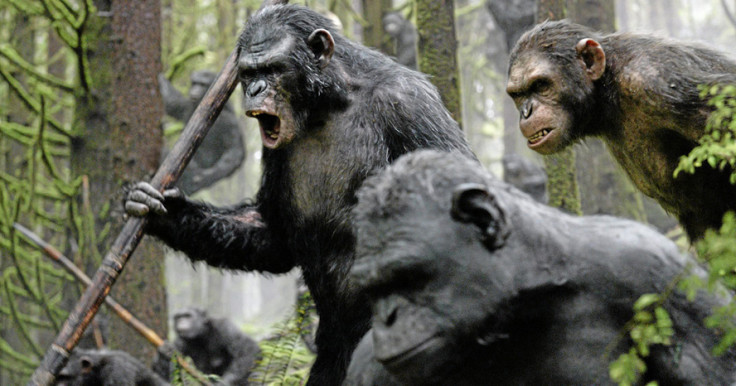Modern humans spared from some cancers as primates evolved to use weapons

Scientists say modern humans could have been spared from a multitude of nasty ancient diseases due to the fact that primates evolved to use tools and weapons, rather than biting, to kill prey and deal with violent conflicts.
Viruses are sometimes able to infect a mammal's egg or sperm and the virus' DNA then becomes incorporated into the animal's genome.
When the animal reproduces, the same viral DNA remnants are passed down in the animal's genes to the next generation. Today, all humans carry some of these remnants in their genes, which affected our ancestors millions of years ago.
Fewer retroviruses than other mammals
Scientists from Oxford University, Plymouth University and the Aaron Diamond AIDS Research Center in the US studied 40 mammal species including humans, chimpanzees, dolphins and giant pandas.
They found that over the past 30 million years, humans have far fewer endogenous retroviruses (ERVs) in their genes than other mammals and, as such, have been able to avoid certain cancers that have affected other animals.
"Considering us simply as a primate species, the proportion of human individuals that are infected with retroviruses is much less than among our relatives such as chimpanzees," said Dr Robert Belshaw, an associate professor in genomics at Plymouth University's School of Biomedical & Healthcare Sciences.
The researchers looked at how the genetic signature of the two edges of a virus' DNA strand changes over time. The edges of the genetic signature are identical when the virus first invades the genome but over time, the virus acquires random mutations that makes it diverge.
The scientists tracked the divergence in the virus and were able to then measure how long retroviruses had spent in each animal's genome.
Using tools cut down exposure to blood-borne viruses
The scientists believe one possible reason why humans have not acquired any new retroviruses in the past 30 million years could be because primates evolved to use tools when hunting for food, rather than having bloody fights that involved biting.
Changing the way they hunted means our ancestors were exposed to far fewer blood-borne viruses, which means fewer viruses were passed down in our DNA, although this is still only a theory.
"We see the rise and the fall of our human superspreader virus HERV-H coinciding with the exceptionally low viral activity in our genomes," said Dr Gkikas Magiorkinis of Oxford University's Department of Zoology.
"We know that HERV-H is crucial for maintaining pluripotency in human stem cells, keeping the cells at a stage where they can still develop into any tissue or organ. Whether these observations are connected or a coincidence remains to be clarified."
Their study, "The decline of human endogenous retroviruses: extinction and survival", is published in the journal Retrovirology.
© Copyright IBTimes 2024. All rights reserved.






